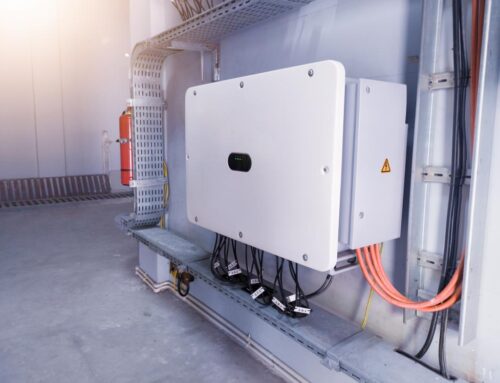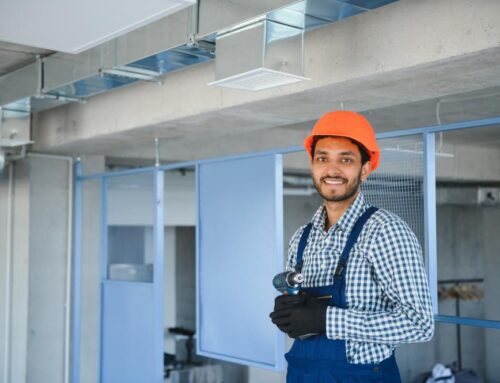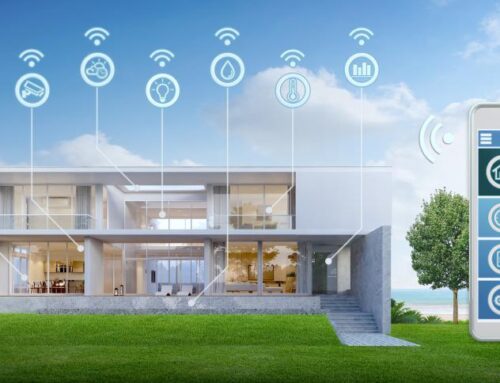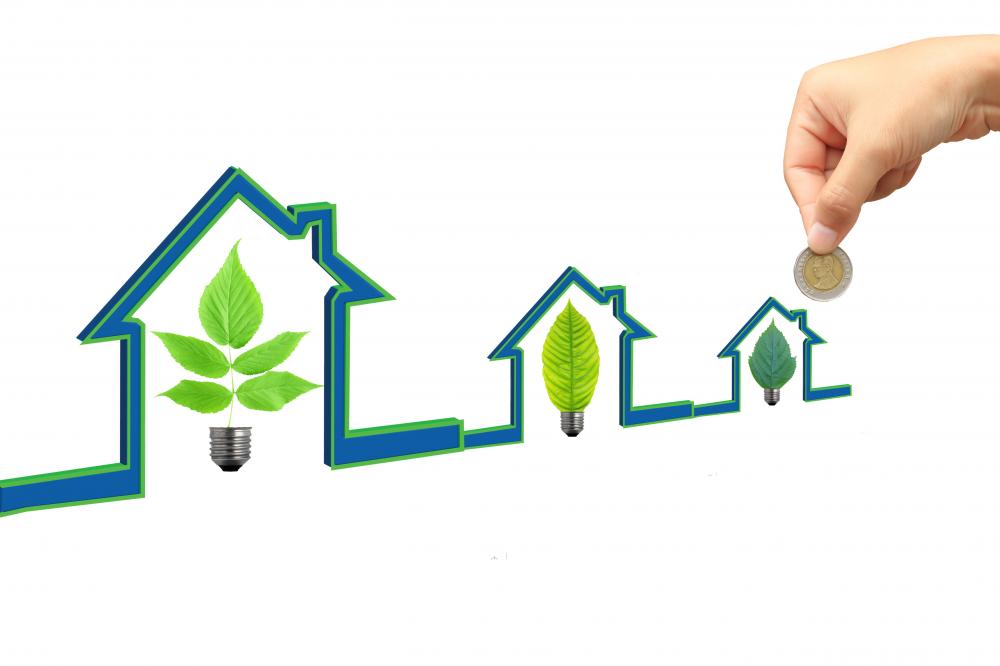
Efficient Lighting Techniques
Investing in energy-efficient lighting is an excellent first step for homeowners seeking to reduce energy consumption. ENERGY STAR certified LED bulbs are a smart choice due to their longevity and efficiency. They use significantly less energy than traditional bulbs and last much longer.
Updating the most frequently used light fixtures in your home can lead to substantial savings on your energy bills. Install dimmer switches to control light levels based on your needs. This simple adjustment can further enhance energy savings.
Incorporate natural light where possible to lessen reliance on artificial lighting. Use window treatments to optimize the natural light in your home, keeping it bright but not overheated.
Smart Thermostats and Temperature Management
Efficiently managing your home's temperature is crucial in saving energy. Smart thermostats offer a convenient solution, allowing you to control settings remotely. This means you can adjust the temperature based on your schedule and needs, optimizing for energy efficiency.
In my experience, smart thermostats can significantly reduce energy consumption. They adjust heating and cooling to align with your daily routines, saving energy without sacrificing comfort. Remember to set your thermostat to a higher temperature when away during summer or a lower one in winter.
Keep window coverings closed during peak sunlight hours in the summer. This will help maintain cooler temperatures indoors without over-relying on air conditioning.
Efficiency in Appliances and Devices
Energy-saving tips for homeowners often emphasize the importance of energy-efficient appliances. Choosing devices with an ENERGY STAR rating ensures they use less energy without compromising performance. In our fieldwork, we've seen how replacing old appliances with energy-efficient models cuts down utility bills considerably.
Consider using a power strip for electronics to avoid standby power consumption. Turn off the strip when devices are not in use, effectively reducing phantom energy usage. Washing machines and dishwashers are also great candidates for improved efficiency. Always run full loads to maximize their energy efficiency.
Insulation and Ventilation Strategies
Properly insulating your home can vastly improve energy efficiency. Seal any leaks around windows and doors to prevent unwanted airflow. This simple action can help maintain a consistent indoor temperature, reducing the need for heating or cooling.
During our work, we've noticed that attic insulation is often overlooked but plays a vital role. Check your attic insulation levels, and consider upgrading if they are insufficient. This prevents energy loss and ensures more efficient heating and cooling.
Ventilation is equally important. Use fans strategically to enhance airflow without relying solely on air conditioning. In cooler months, proper ventilation can help move heat efficiently throughout your home.
Water Heating and Consumption
Water heating is a significant contributor to energy usage. Lowering the temperature on your water heater can lead to notable savings. Set it to a safe and energy-efficient temperature to optimize your consumption.
Install low-flow showerheads and faucet aerators to reduce water usage. This not only conserves water but also decreases the energy required to heat it. Implementing these changes can have a big impact on energy consumption.
Take advantage of energy-saving tips for homeowners by washing clothes in cold water. This simple change can reduce a considerable portion of your energy bill.
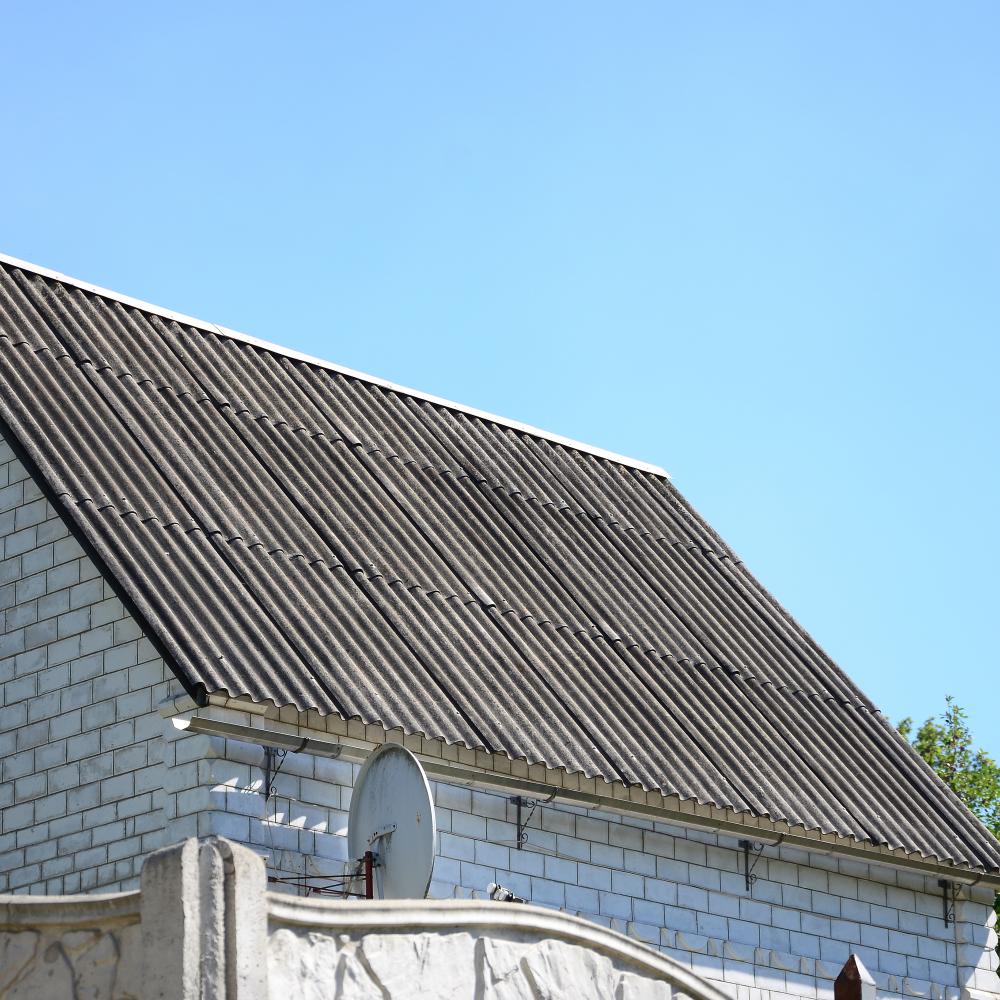
Understanding Energy Efficiency in Homes
As someone who has spent years working with clients to improve their Home Energy Efficiency, I can attest to its importance. Ensuring your home consumes less energy not only lowers bills but also makes your living environment more comfortable. Over time, this has become more of a necessity than a choice. Many homeowners see the benefits in their wallets and their living comfort.
Home Energy Efficiency entails optimizing how energy is used in your household. This could mean installing energy-efficient appliances or improving the insulation of your home. The goal is to use less power to achieve the same outputs, thus benefiting both the environment and your finances. Achieving this requires strategic planning and a commitment to sustainable choices. At Beverly Hills Electrician Pros, we assist clients in making informed decisions to enhance their Home Energy Efficiency.
Strategies for Improving Energy Efficiency
To boost Home Energy Efficiency, one must first identify areas where energy consumption can be reduced. Simple solutions often start with upgrading lighting systems. Switching to LED bulbs is an easy and effective way to cut down on energy use. This small change makes a significant difference over time. The benefits extend to longer bulb lifespan and better lighting quality.
Another area that often requires attention is home insulation. Proper insulation keeps your home warm in winter and cool in summer, which reduces the need for heating and cooling. The team at Beverly Hills Electrician Pros often advises clients to invest in high-quality insulation materials. While the initial cost may seem high, the long-term savings on energy bills offer a worthwhile return on investment. Moreover, energy-efficient windows can prevent heat loss as well.
Smart home technology also plays a vital role. By installing programmable thermostats, homeowners can control heating and cooling with precision. Smart systems adapt to your schedule, ensuring energy is not wasted when you’re not home. This is a subtle yet impactful way to improve Home Energy Efficiency. We can help integrate these technologies seamlessly into your existing systems.
Real-Life Experiences with Energy Efficiency
I recall a project where we aimed to improve a client's Home Energy Efficiency by overhauling their lighting system. The initial audit revealed that outdated halogen lights consumed excessive power. By replacing them with LEDs and installing dimmers, the client experienced a noticeable drop in energy usage. They reported not only lower energy bills but also an enhanced ambiance in their living spaces.
Additionally, our team helped a local school reduce its carbon footprint by implementing energy-efficient solutions. We replaced old HVAC systems with modern, energy-saving units. The changes not only improved the school's efficiency but also had a positive impact on students’ comfort in the learning environment. These projects highlight the tangible benefits of focusing on energy efficiency. Such initiatives are a testament to our expertise and commitment to sustainable solutions.
Future Innovations in Home Energy Efficiency
As technology advances, so do opportunities to enhance Home Energy Efficiency. One promising area is the integration of renewable energy sources. Harnessing solar power, for instance, can significantly reduce reliance on fossil fuels. Many homeowners are starting to see the long-term benefits of installing solar panels. These generate clean energy and offer potential savings on electricity bills.
We at Beverly Hills Electrician Pros are exploring ways to integrate these technologies into everyday home energy systems. Combining renewable energy with smart home devices enhances efficiency and maximizes energy conservation. This holistic approach ensures that homeowners not only save money but also contribute to a more sustainable future. Our team is always on the lookout for cutting-edge solutions to bring to our clients.
Practical Tips for Sustainable Living
For those just beginning their journey toward better Home Energy Efficiency, starting small is key. Begin by conducting an energy audit to identify areas for improvement. A professional evaluation gives a clearer picture of where energy is most consumed. From there, implement changes that address specific needs. Awareness is often the first step toward meaningful change.
Consider investing in high-efficiency appliances. Though the upfront cost may be higher, the savings on energy bills make them a worthwhile investment. Another tip is to unplug devices when not in use. Many gadgets continue to consume energy even in standby mode, contributing to unnecessary energy use.
In conclusion, achieving a high level of Home Energy Efficiency is an ongoing process. It requires informed decisions and consistent effort. At Beverly Hills Electrician Pros, we are dedicated to guiding our clients every step of the way. By adopting these strategies, you too can enjoy the benefits of a more energy-efficient and comfortable home.
Energy Efficiency Tips
As a leading provider of electrical services in Beverly Hills, we often encounter homes with inefficient energy usage. Improving energy efficiency is a surefire way to reduce utility bills. From installing energy-efficient lighting to optimizing appliance usage, there are numerous strategies to cut down on energy consumption. A simple switch from incandescent bulbs to LEDs can make a significant impact. LED bulbs consume less electricity and have a longer lifespan, ensuring you save on both your power bill and replacement costs.
Smart thermostats are another excellent investment. They allow precise temperature control, ensuring heating and cooling systems operate only when necessary. Adjusting your thermostat by a few degrees can lead to substantial savings annually without sacrificing comfort. Regular maintenance of your HVAC system ensures it operates efficiently, further aiding in the effort to reduce utility bills.
Smart Home Upgrades
Integrating smart technology into your home goes beyond convenience; it can substantially reduce utility bills. Devices like smart power strips are invaluable in decreasing energy waste. They automatically cut off power to idle devices, preventing “vampire” energy drain. This minor adjustment in your home can lead to noticeable savings over time.
Beyond lighting and temperature control, consider a professional energy audit. This service identifies areas where upgrades or repairs could lower costs. Our professional experience shows that addressing issues like poor insulation or outdated appliances can substantially reduce utility bills. Updating to energy-efficient appliances not only decreases energy consumption but also enhances home value.
Maintenance and Care
Regular maintenance is key to reducing utility expenses. As experts in the field, we advise homeowners to check for leaks or drafts around windows and doors. Sealing these can prevent energy loss, helping to significantly reduce utility bills. Use weather-stripping and caulking to address these common problem areas.
Keep your HVAC system in top condition by changing filters regularly. Clean filters maintain optimal air flow, reducing strain on the system and leading to lower energy bills. An efficient HVAC system is critical, especially during extreme weather conditions where heating and cooling demand spikes.
Additionally, water heaters are often overlooked but play a big role in utility expenses. Lowering the heater temperature to a reasonable level saves energy and cuts costs.
Harnessing Natural Resources
Leveraging natural resources is a low-cost strategy to reduce utility bills. Maximize the use of natural light wherever possible. During sunny days, open curtains to let the light in, reducing the need for artificial lighting.
Consider planting trees or shrubs around your home for natural shading. This landscaping not only beautifies your property but also provides a buffer against extreme temperatures, reducing the need for heating or cooling. Such small investments can lead to significant savings over time.
Investment in Renewables
For those ready to make a larger investment, renewable energy sources present a viable option for significant long-term savings. Solar panels, for instance, can drastically cut energy costs and even provide energy back to the grid. The initial setup costs can be offset by tax credits and incentives, making them more accessible than ever before. As electricians, we can assist in the transition to renewables seamlessly.
In conclusion, there are myriad ways to reduce utility bills effectively. By implementing these strategies, you can enjoy a more sustainable, cost-effective lifestyle. At Beverly Hills Electrician Pros, we are always ready to assist with expert advice and professional services.
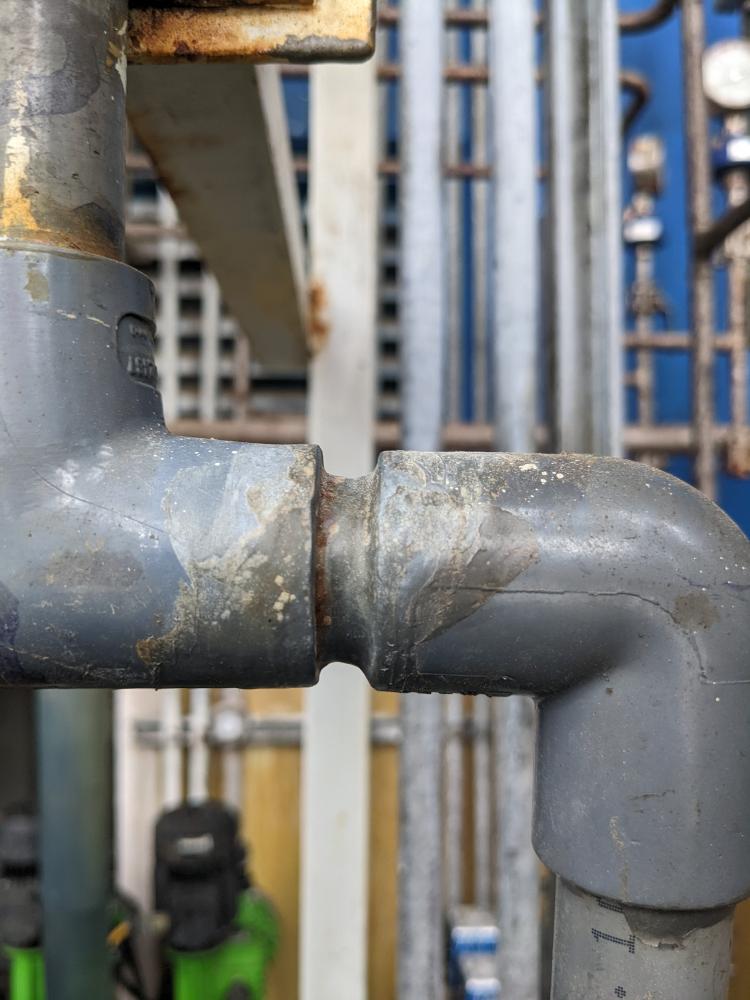
What are the top 10 ways to save energy?
As experts in energy efficiency, we've seen firsthand how small changes can lead to significant savings. Here are our top 10 ways to save energy at home:
1. **Upgrade to LED Lighting**: Replacing incandescent bulbs with LEDs can drastically cut energy use by up to 80%. Their longevity also reduces replacement costs.
2. **Install Smart Thermostats**: These devices learn your schedule and adjust heating and cooling accordingly, optimizing energy use without sacrificing comfort.
3. **Seal Windows and Doors**: Prevent drafts and heat loss by caulking and weather-stripping. This simple act can yield big savings on heating and cooling.
4. **Optimize Appliance Use**: Use energy-efficient appliances and ensure they operate at full loads. ENERGY STAR products can save up to 50% more energy.
5. **Increase Insulation**: Proper insulation in your attic, walls, and floors helps maintain a consistent indoor climate, reducing the need for heating and air conditioning.
6. **Use Standby Power Strips**: Cut off energy to electronics that draw power even when not in use, reducing “vampire” energy loss.
7. **Leverage Natural Light**: Maximize sunlight use during the day to cut down on electric lighting. It’s both cost-effective and good for the environment.
8. **Lower Water Heater Temperature**: Set your heater to 120°F to save energy and avoid scalding risks.
9. **Practice Efficient Water Use**: Install low-flow showerheads and faucet aerators to reduce water heating costs.
10. **Consider Renewable Energy Sources**: Investing in solar panels can significantly reduce energy bills and contribute to a sustainable future.
What strategies have you found most effective in your home? Share your experience with us!
What wastes the most energy in a house?
From our experience, one of the biggest energy wasters in homes is inefficient heating and cooling systems. Many households lose energy through poorly sealed windows and doors, outdated HVAC systems, or lack of proper insulation, especially in attics and walls. These inefficiencies force systems to work overtime, using up more energy than necessary.
Another major energy sink is outdated appliances like refrigerators, washing machines, and dryers, which can draw more power than modern, energy-efficient models. Even smaller devices like chargers and kitchen appliances on standby mode contribute to phantom energy use, which surprisingly adds up over time.
Lighting also plays a role, particularly if homes still use incandescent bulbs. Switching to LEDs can alleviate this, offering a longer lifespan and significantly reduced energy consumption. Have you considered upgrading your insulation or appliances recently? It could make a world of difference in your energy bills.
What can I do at home to be more energy efficient?
Achieving energy efficiency at home can feel like a big task, but it really boils down to small, actionable steps. Start by conducting an energy audit to identify areas that need improvement. You might find that sealing drafts or adding insulation is your first priority.
Upgrade your lighting to LEDs, install a programmable thermostat, and always run full loads in your washing machine and dishwasher. These small changes can have a surprisingly big impact over time. Also, consider reducing water heating expenses by using low-flow showerheads and washing clothes in cold water.
Regarding electronics, unplug devices when not in use or use smart power strips to automatically cut power to idle devices. Investing in energy-efficient appliances can also offer long-term savings. Finally, think about leveraging natural light and planting shade trees, which can naturally cool your home.
What’s your first move toward energy efficiency? We’d love to hear what you’re planning!
What saves the most energy in a house?
Based on numerous projects we've handled, the most significant energy savings come from upgrading to energy-efficient appliances and systems. A smart thermostat can save around 10% of your heating and cooling costs by automatically adjusting to your household routine. Likewise, ensuring your home is well-insulated can reduce heating and cooling energy use by up to 20%.
Switching to solar energy, where feasible, provides even greater benefits, offering long-term reductions in utility bills and promoting environmental sustainability. Additionally, replacing old HVAC systems with energy-efficient models can drastically lower your monthly expenses.
Making these upgrades may involve upfront costs, but the payback period is typically short, and the long-term savings are substantial. Have you evaluated your home’s energy systems recently? It might be time to consider these impactful changes.
#### Resources for Energy Efficiency Improvements-
ENERGY STAR Program
The ENERGY STAR program provides information on energy-efficient products and practices for homes, businesses, and industries. The program offers guidelines and resources to help you save energy, save money, and reduce greenhouse gas emissions.
https://www.energystar.gov -
U.S. Department of Energy – Energy Efficiency & Renewable Energy
The Office of Energy Efficiency & Renewable Energy (EERE) leads efforts to develop and deploy affordable, accessible, and efficient energy technologies that strengthen the economy, protect the environment, and improve energy security.
https://www.energy.gov/eere -
Environmental Protection Agency (EPA) – Energy Resources
The EPA provides valuable information and tools for improving energy efficiency and exploring renewable energy options, helping individuals and organizations reduce their environmental impact.
https://www.epa.gov -
Lawrence Berkeley National Laboratory – Energy Technologies Area
The Energy Technologies Area at Lawrence Berkeley National Laboratory conducts public interest energy research, focusing on energy-efficient and sustainable technologies, to address global energy challenges.
https://www.lbl.gov -
Alliance to Save Energy
The Alliance to Save Energy is a nonprofit organization that advocates for energy efficiency policies and promotes energy-efficient technologies to achieve a healthier economy, a cleaner environment, and greater energy security.
https://www.ase.org

